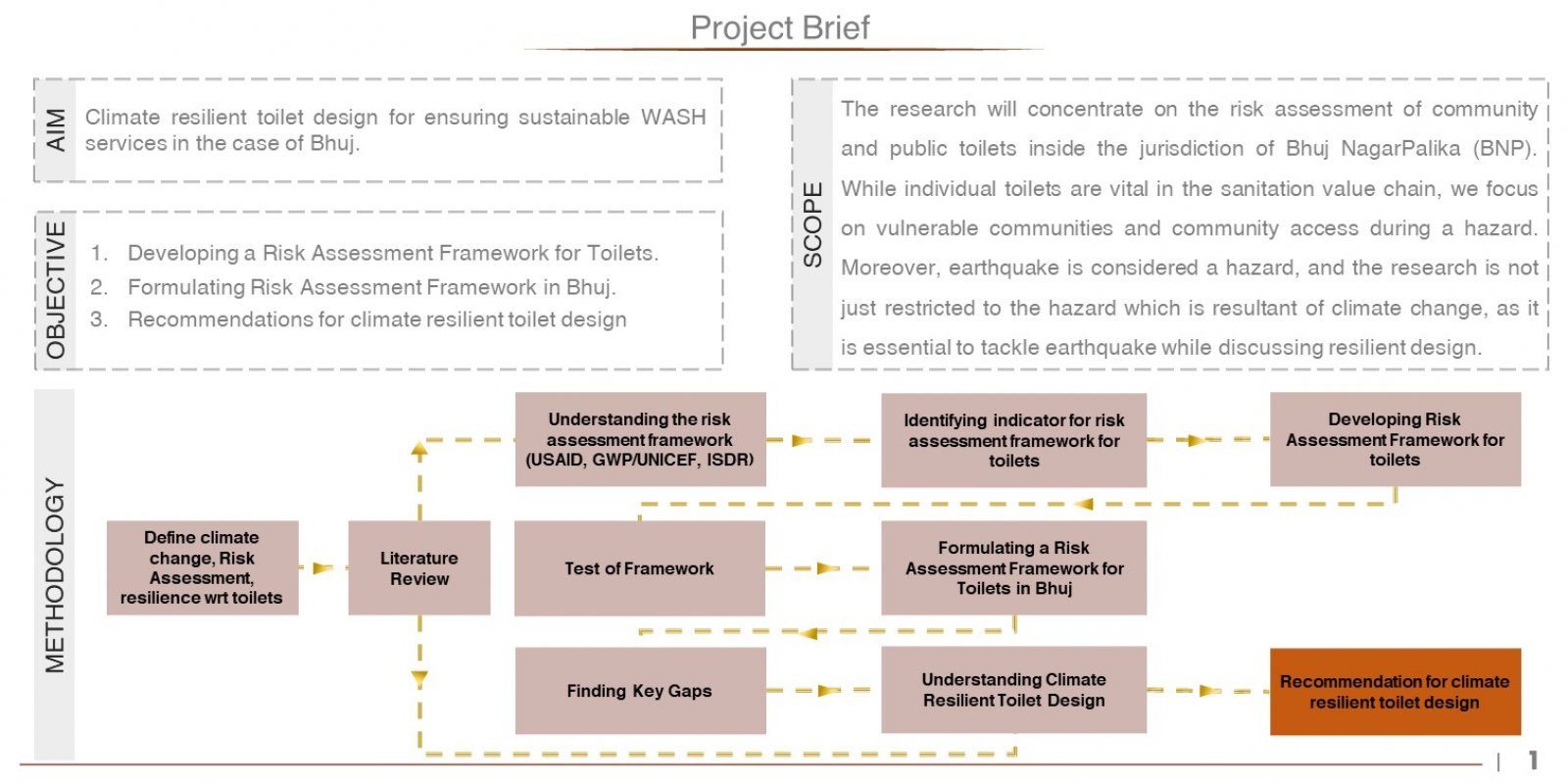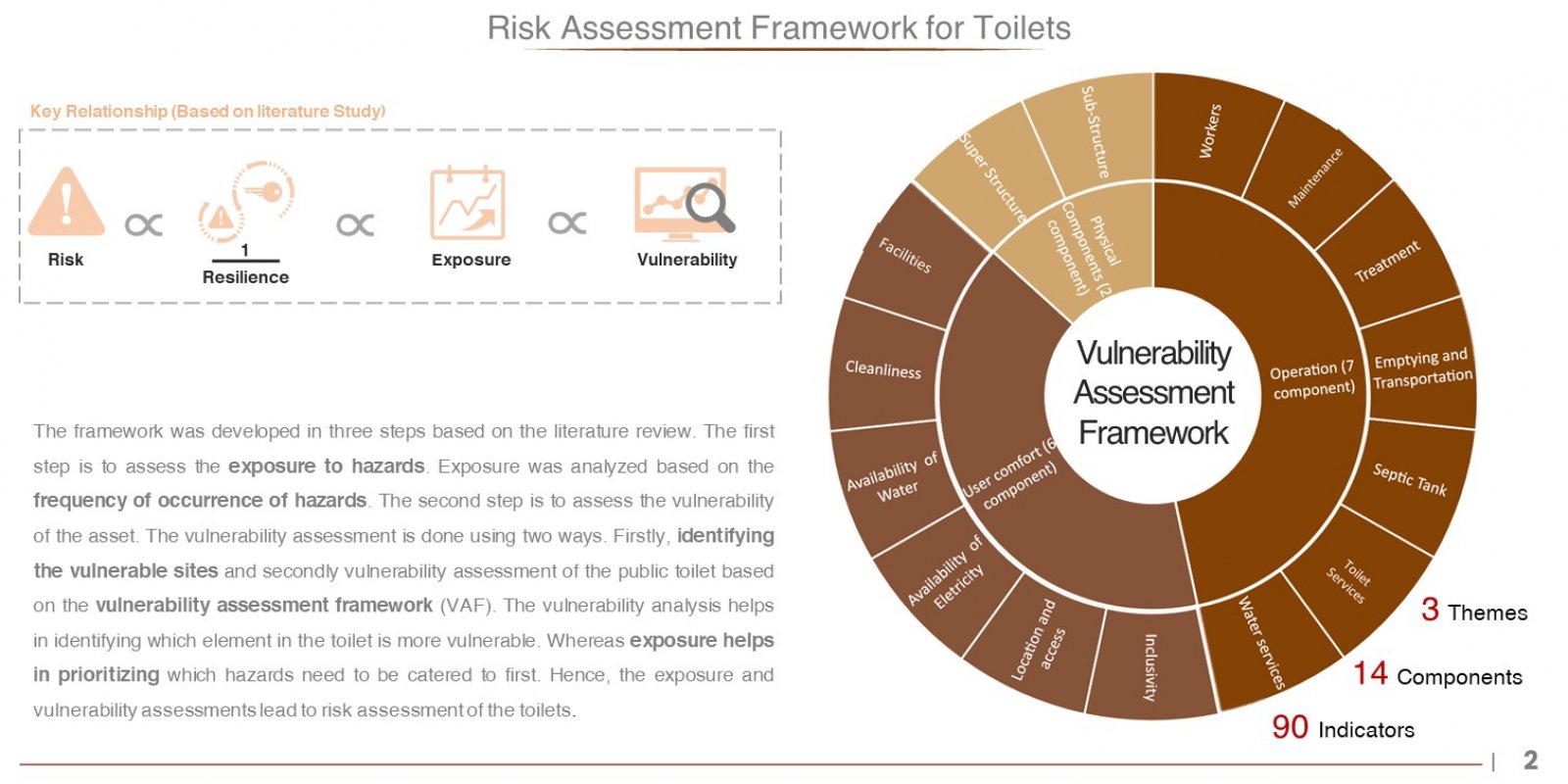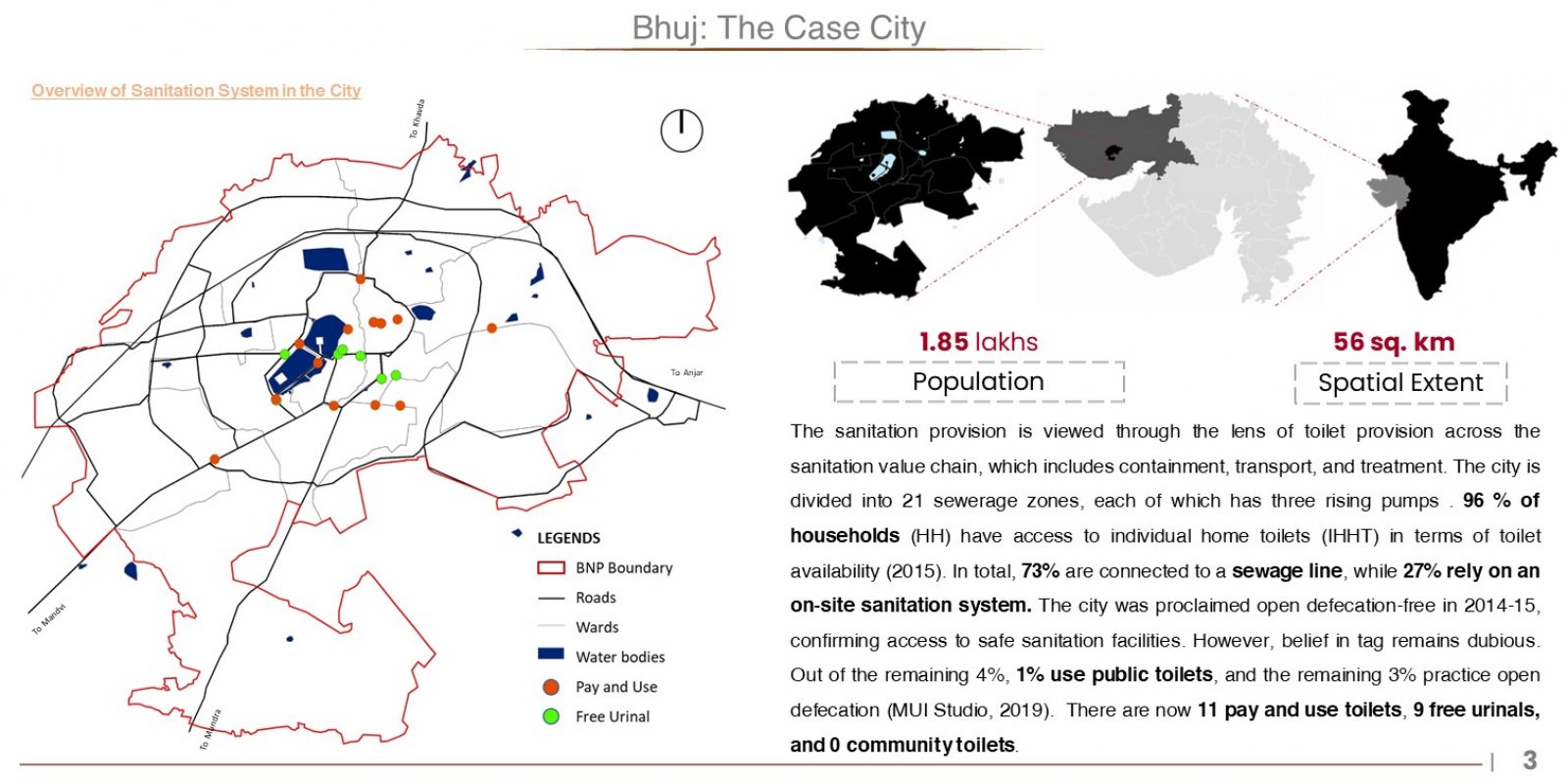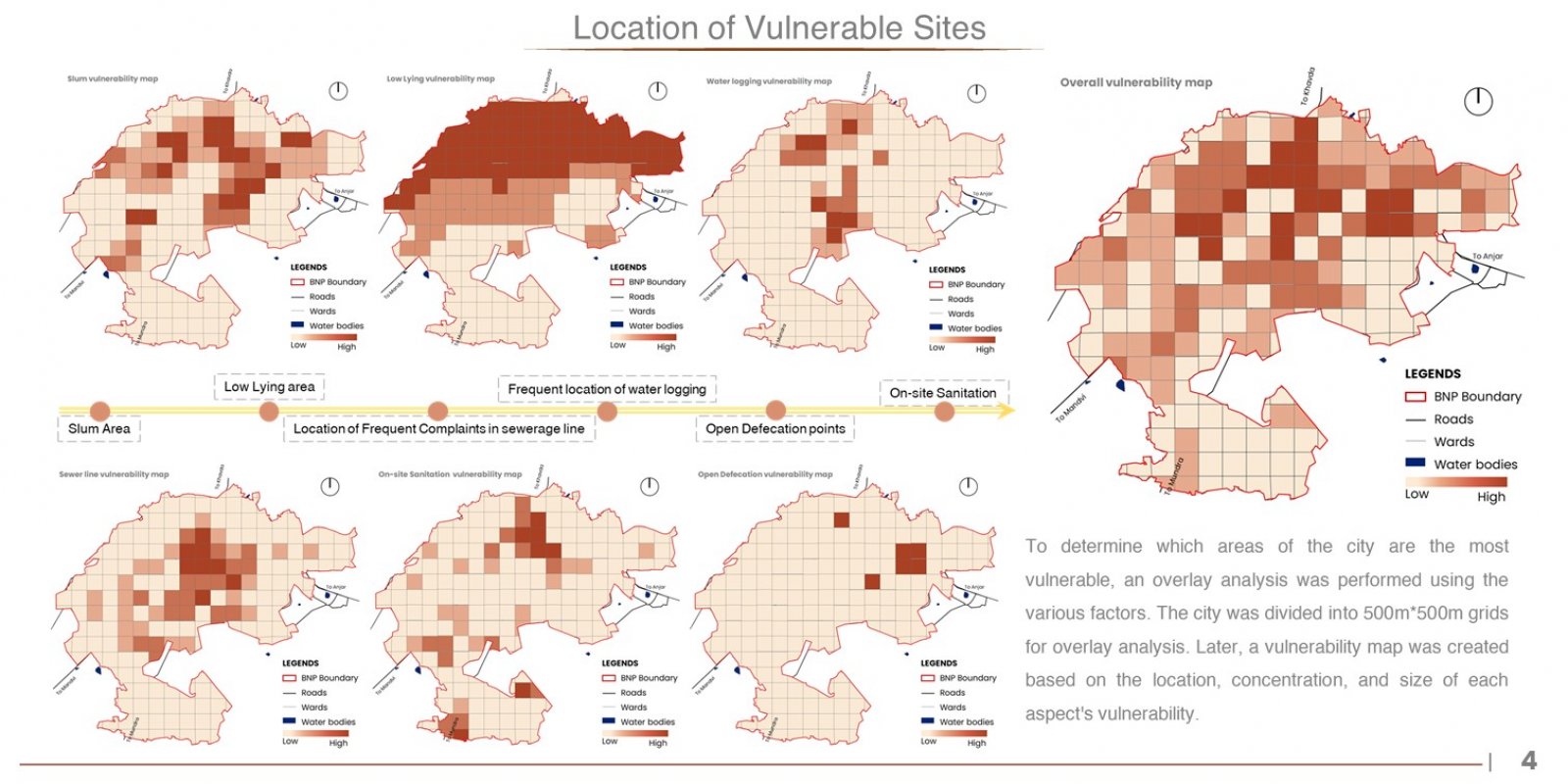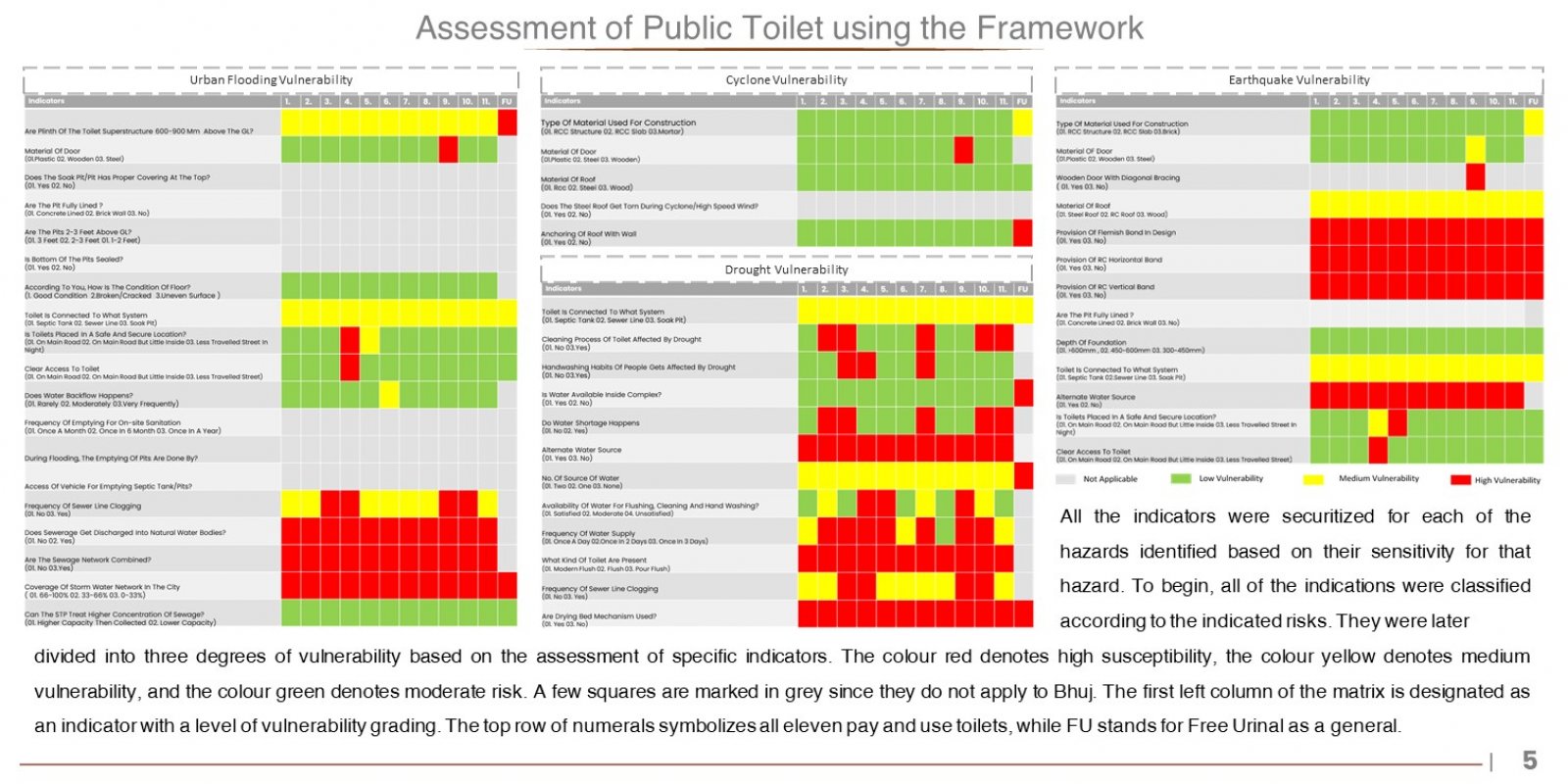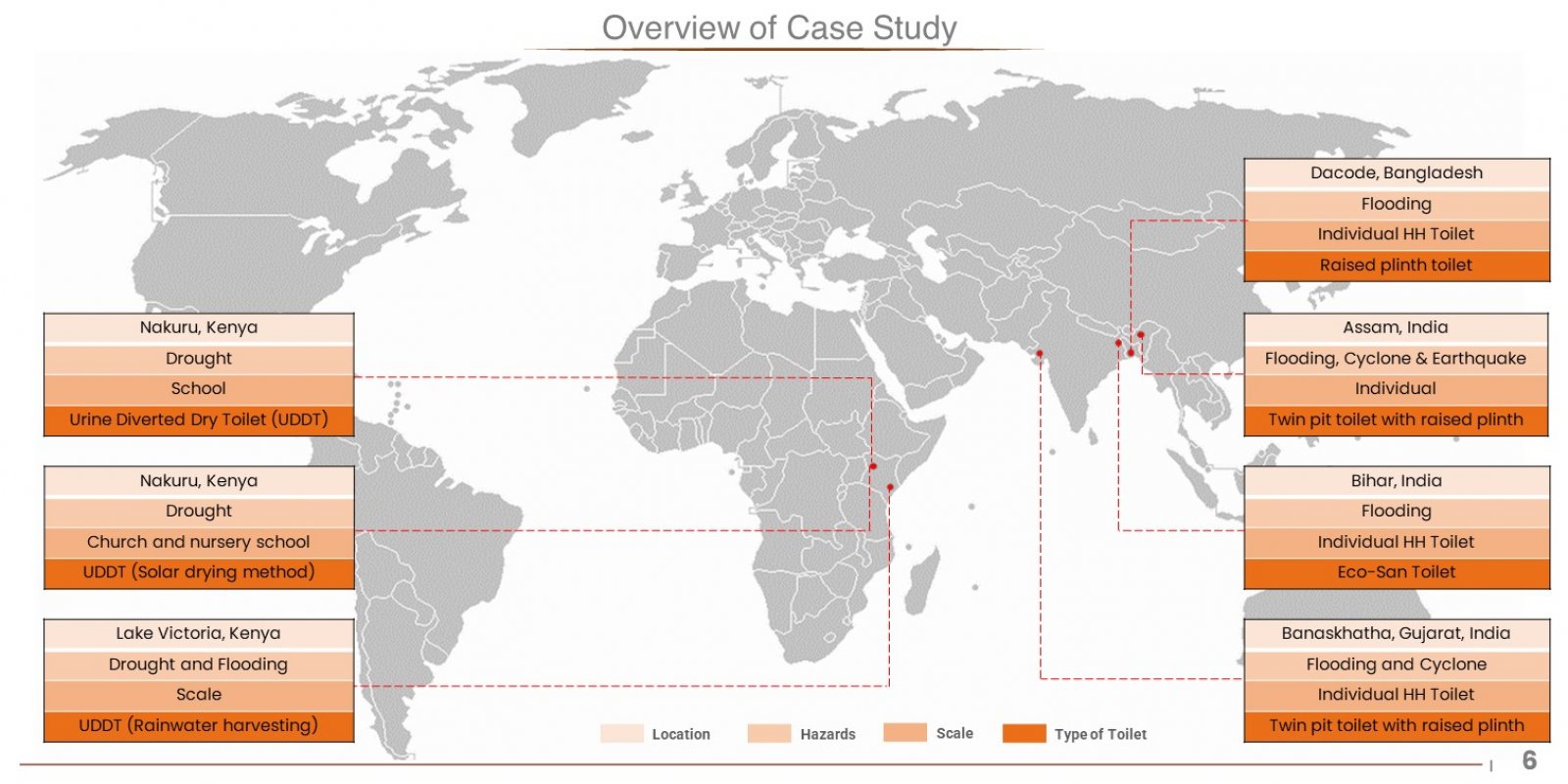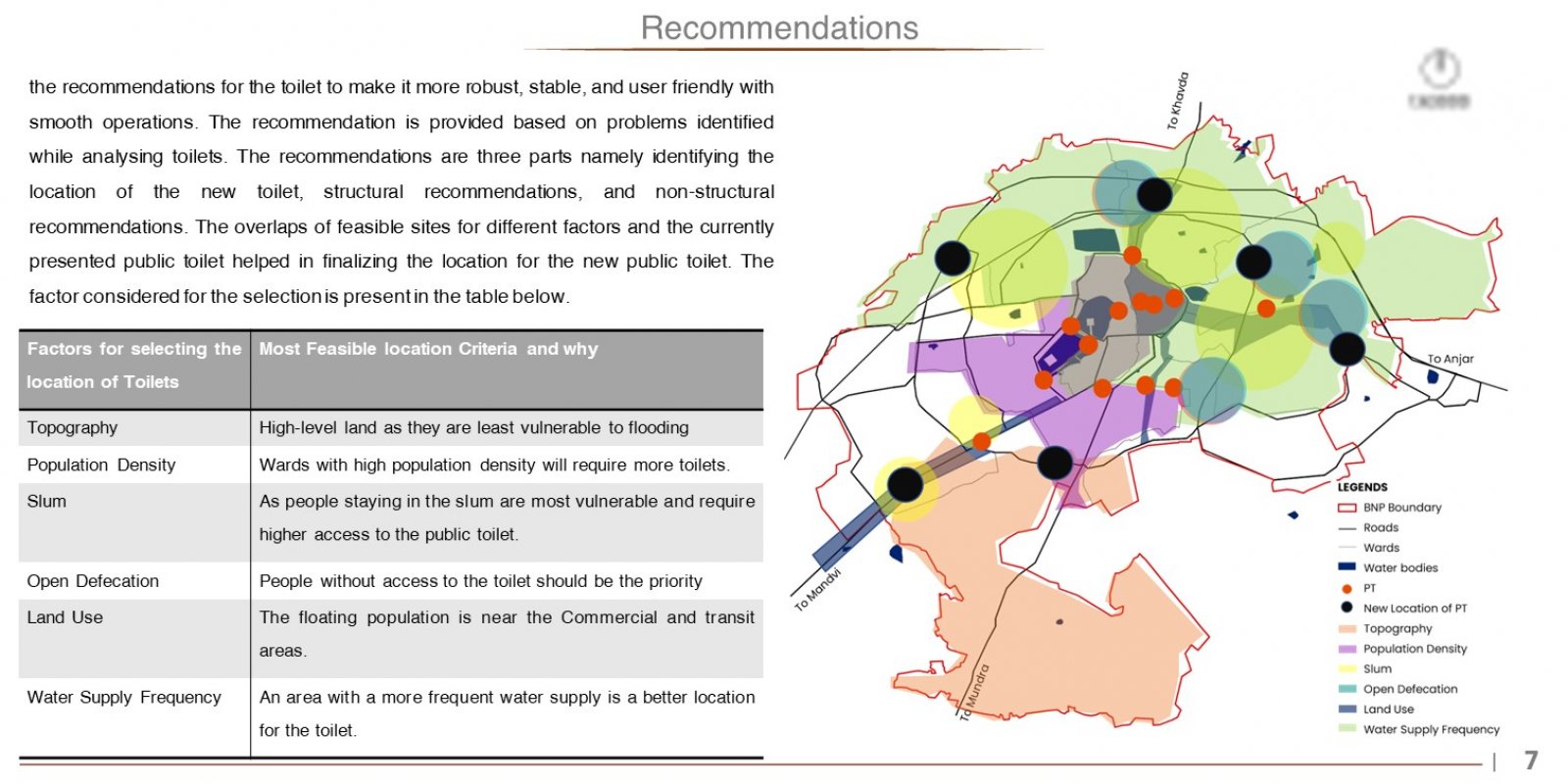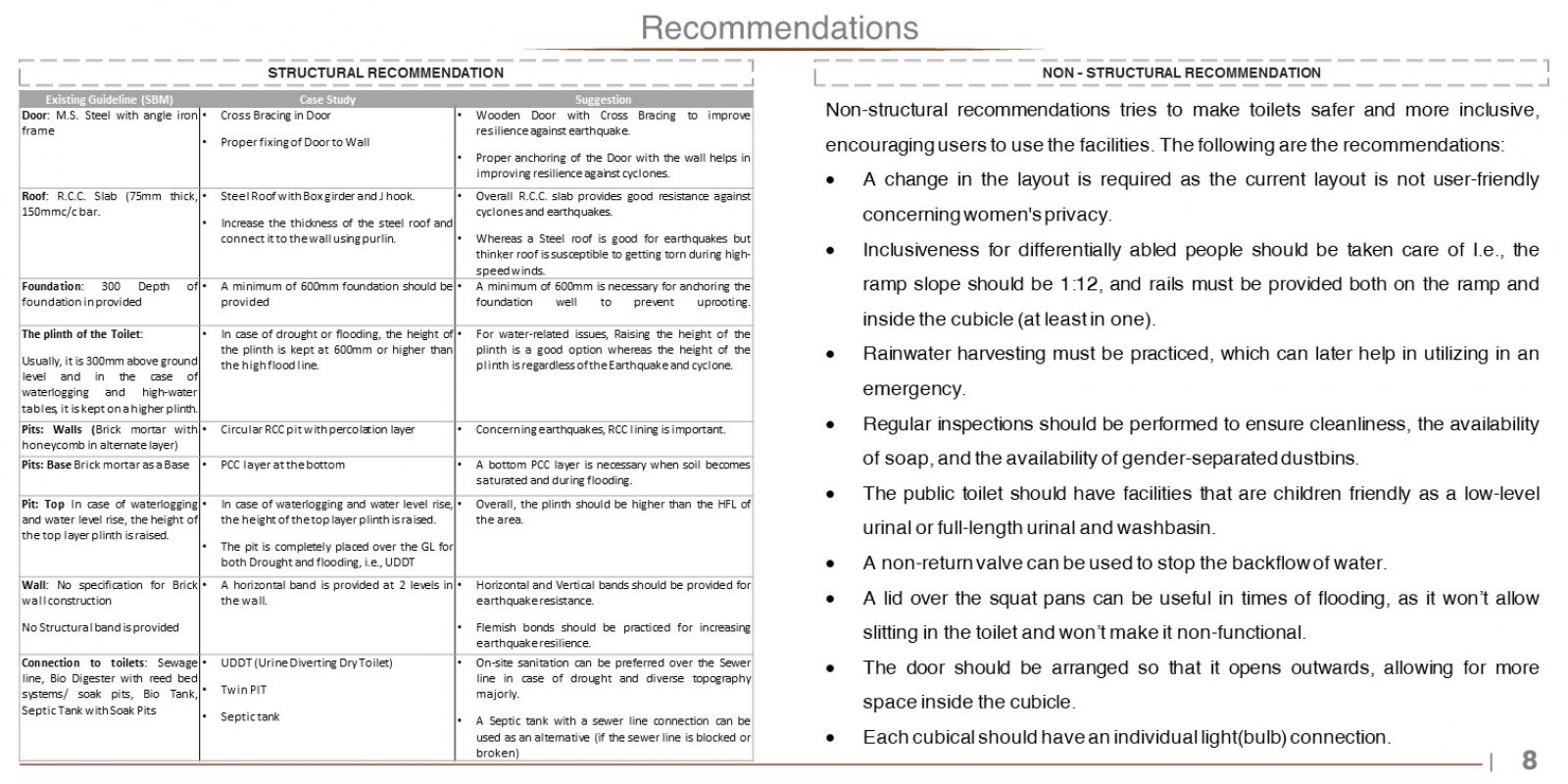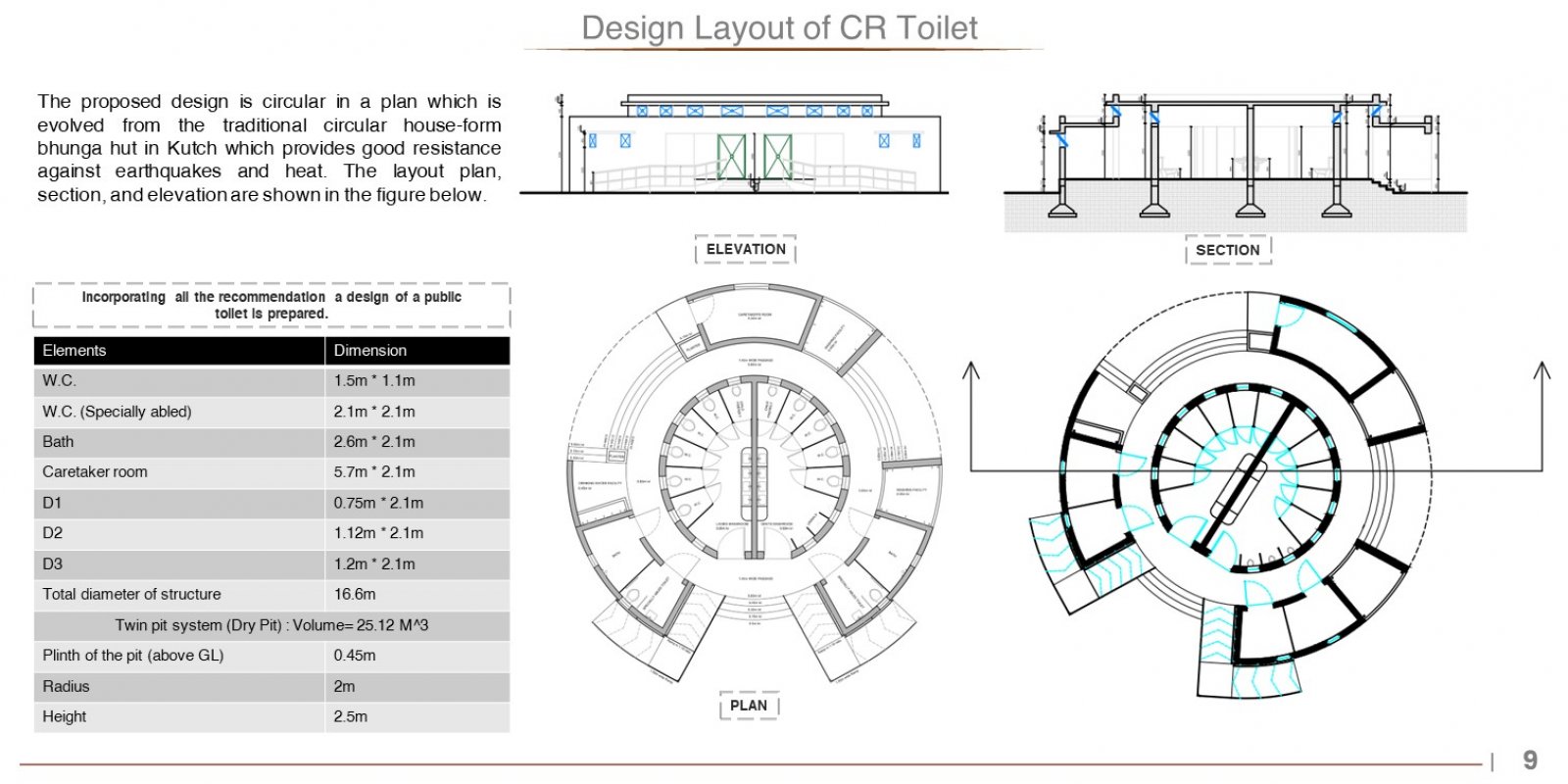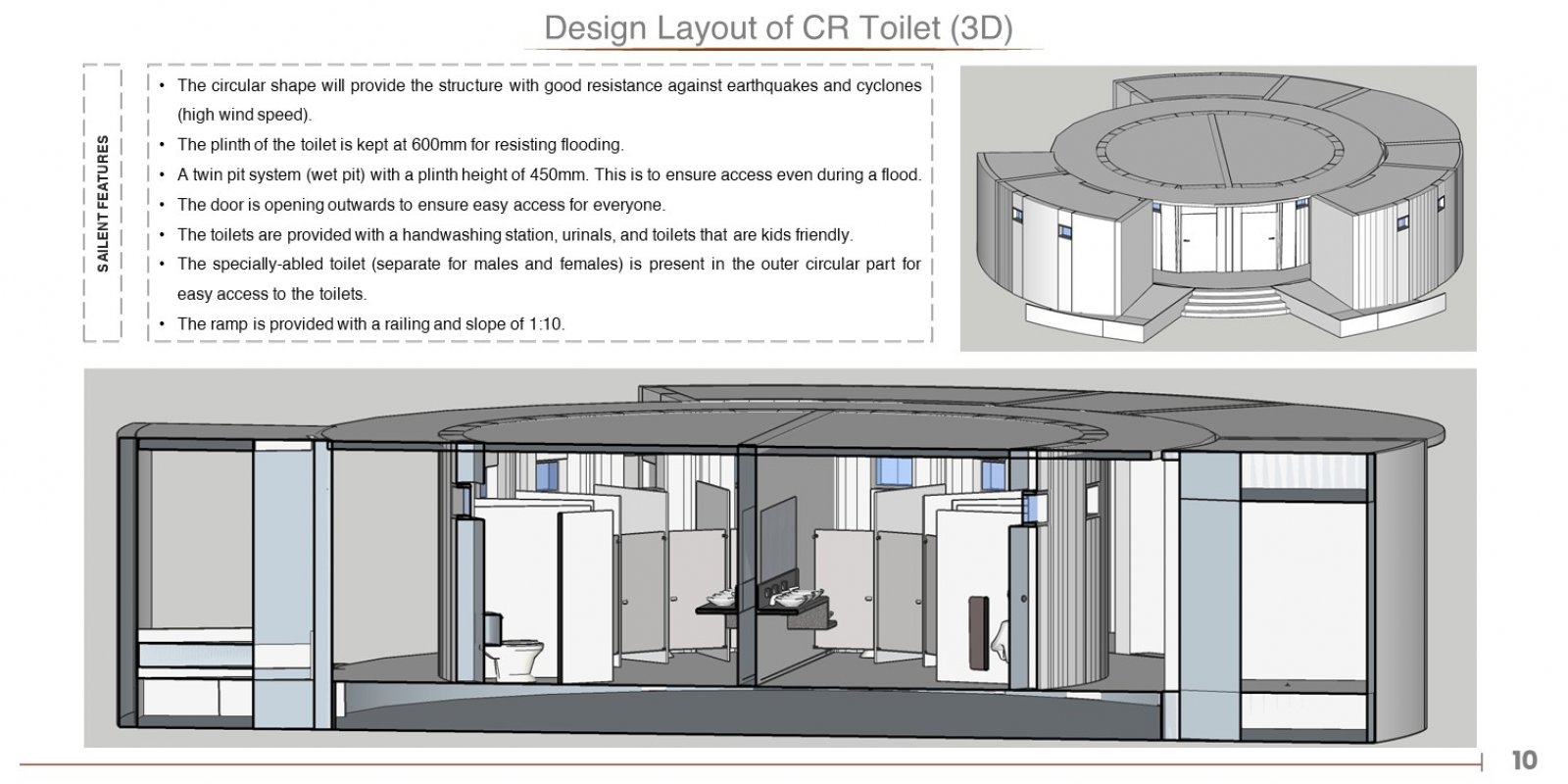Your browser is out-of-date!
For a richer surfing experience on our website, please update your browser. Update my browser now!
For a richer surfing experience on our website, please update your browser. Update my browser now!
Around 9% of the global population practices open defecation, and 4.2 billion people lack access to safely managed sanitation, with India having the highest number of populations without access to safe sanitation. To address this, many government interventions like as the Total Sanitation Campaign, the Nirmal Bharat Abhiyan, and the Swachh Bharat Mission (SBM) were adopted. But the increased frequency and intensity of climate climate-related hazard has interrupted access to essential services and placed stress on sanitation systems. Thus, this research aims towards developing climate resilient toilet designs for ensuring sustainable WASH services in case of climate climate-induced hazards for Bhuj. The study review three3 international frameworks on risk assessment for hazards, national policies of WASH, and allied sectors to analyse the existing literature on climate resilient framework. The research draws from the identified literature several overlaps to develop a framework for climate resilient toilets. This study considers risk from the perspective of hazard, exposure, and vulnerability. Further considering the case study method the study evaluates the developed framework in the context of Bhuj, India. Identifying public toilets and urinals across the case city, the study utilizes qualitative methods like visual inspection, unstructured interviews, user experience, etc to evaluate the toilets based on the framework. Based on the risk identified recommendations were made to reduce the risks using structural and non-structural interventions. This framework can be used by any government body, private agencies, and development organization to understand the risk of toilets.
